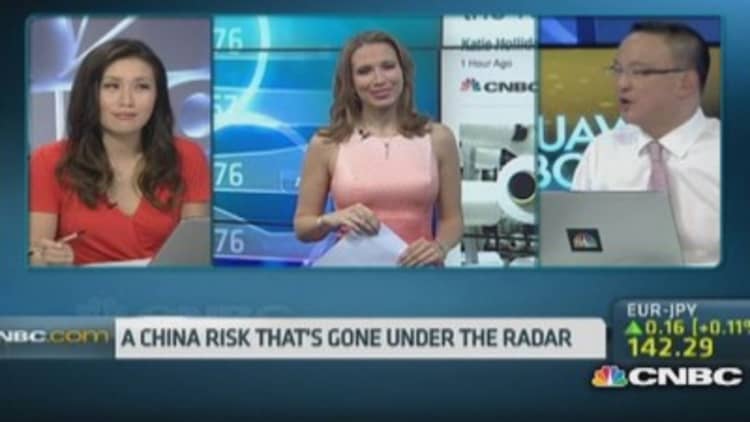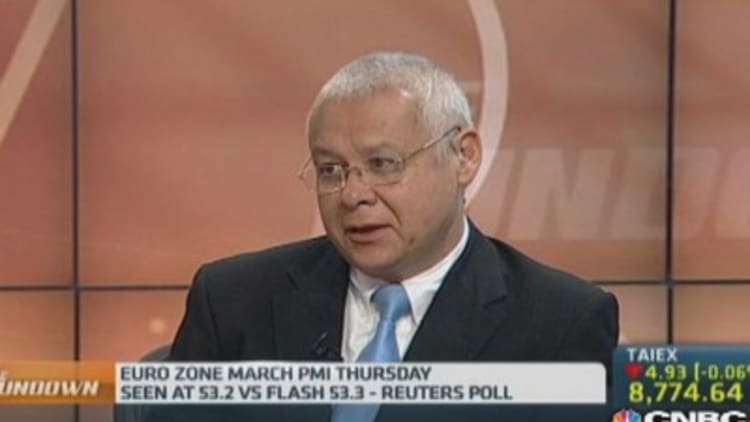
Corruption scandals, corporate debt defaults and growth scares have been talking points on China's economy in recent times, but there's another potential headwind that should be on the radar, says JP Morgan.
According to a recent research note from the investment bank, producer prices in have now been declining for the longest period of time since the 1997-1998 Asian financial crisis, and the trend is posing a very real threat to Beijing's broader macro-economic policy.
"Perhaps more worrying [than consumer price inflation] is the persistent PPI [producer price index] deflation, which is closely related to corporate profits and hence manufacturing investment," said Grace Ng, senior China economist at JP Morgan bank.
Read MoreWhat's behind China's graft crackdown?
"As such, if PPI remains subdued… it would dim the prospects of any potential recovery in manufacturing fixed asset investment this year," she added.
While Beijing has been fairly successful in taming consumer inflation in recent years, producer prices, which fell for a 24th straight month in February, has sparked deflationary concerns.
"If further weakness in the real economy were to lead to sustained downward pressure on general prices, it would likely add to the pain of the economy's deleveraging process, as seen during the last banking crisis of the late 1990s," she added.
Concerns have been rife over China's growing debt levels in recent years, and corporate debt has been reported to have spiked to over $12 trillion at the end of 2013, according to Standard & Poor's estimates.
Read More'Lehman moment' in China? Not quite, says BlackRock
And, according to JP Morgan, continued weakness in industrial prices could make it more difficult for corporates to pay off their debts.
"Slower nominal growth, in addition to slowing in the real economy, restrains debtors' ability to repay debt," said Ng, adding that the sharp deceleration in normal GDP growth in the mid-1990s helped lay the ground for the banking crisis later in the decade.

A flurry of disappointing Chinese economic data in recent months has triggered speculation that policymakers may soon unleash stimulus to boost the economy. The chatter gained traction last week on reported comments by Chinese Premier Li Keqiang that the government had well-prepared policies in place and would roll out targeted measures step by step to aid the economy.
JP Morgan says managing near term growth and inflation will be a major challenge for policy makers this year, and could mean some form of monetary easing.
Read MoreCentral banks, China PMI to guide Asia markets this week
However, Shuang Ding, senior China economist at Citi Investment Research and Analysis, told CNBC that although he agreed continued PPI deflation would have a negative impact on the revenues of China corporations, he expected that weaker input costs would help balance out any negative impact.
"I would not say PPI deflation is the main risk, what's more important is economic momentum. As the economy declines demand will be lower. If corporations cannot sell their products that will be the main problem," he said.
JP Morgan's Producer Price Index forecast for China is -0.7 percent in 2014.



